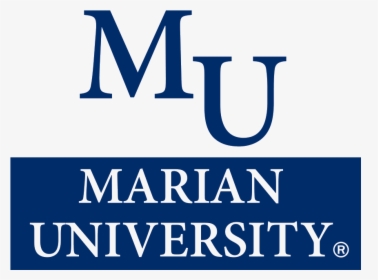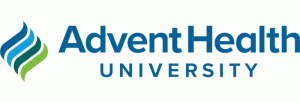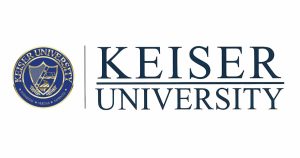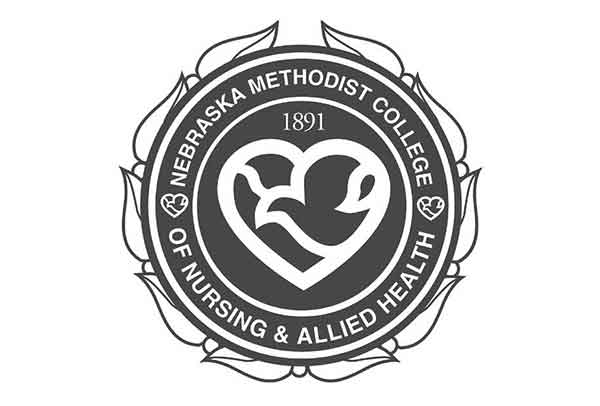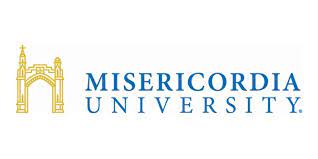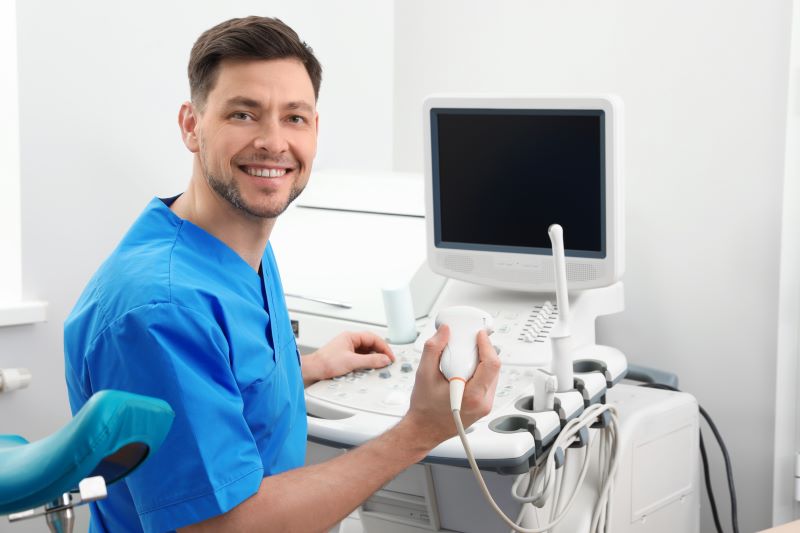Quick Look:
- Many online sonography programs, like those at Oregon Institute of Technology, Jackson College, and Santa Fe College, combine affordable tuition rates with flexible online coursework and hands-on clinical components to prepare students for national certification exams.
- Programs often cover critical areas such as abdominal, cardiac, and obstetrics sonography, ensuring students are well-prepared for a variety of healthcare roles while offering practical internships to gain real-world experience.
- Institutions like Misericordia University provide generous financial aid packages averaging over $23,000 annually, and programs are accredited by trusted bodies like the Commission on Accreditation of Allied Health Education Programs (CAAHEP) to ensure quality education.
- Students can pursue general or specialized tracks, such as vascular sonography or gynecology, leading to competitive salaries and employment in hospitals, outpatient clinics, and imaging centers.
Not knowing how to identify reputable, accredited online sonography programs can lead to investing in a program that won’t prepare you for a sonography career. To help students keep up with the growing demand for qualified sonographers, we’re sharing options for where to get a sonography diploma online.
Featured Programs
Top Online Sonography Programs
Some top online sonography programs come from Marian University, Fort Hays State University, Washburn University, and Smith Chason College. These schools offer accredited online bachelor’s or associate’s degrees in diagnostic medical sonography and include clinical rotations for online learners to gain a solid foundation and hands-on experience.
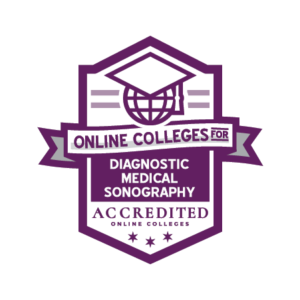
Their well-structured curriculums cover ultrasound courses, abdomen sonography, OB/GYN sonography, vascular technology, and echocardiography. By choosing one of our top 10, students can qualify for jobs in diagnostic medical sonography and beyond.
As you go through our list, here’s some great advice from Kelsey Ludeman, an Academic Success Coach at the University of Houston-Downtown, on what to look for when selecting a legitimate online sonography program:
“Make sure that the school is accredited and is offering a CAAHEP-accredited program. Confirm that the course of study is tailored to your degree needs and career plans. Review the timeline of the program, and check the costs to ensure that the tuition fees work for you.
Choose a field of focus that interests you. There are several specialties to follow, such as mammography or cardiovascular. Along with a variety of sonography focuses, there are also different program durations, including one, two, and four-year plans.”
Related:
- How Do I Find Accredited Online Colleges With No Application Fee and Low Tuition?
- Accredited Online Colleges Offering a Free Laptop or Discounted Laptop
- 9 Tips For Balancing Work, Life, and Academics: Navigating the Challenges of Pursuing an Online Master’s Degree
- 10 Tips for Maximizing Your Learning Experience in Online College
1. Marian University
Marian University offers a convenient path toward an online bachelor’s degree if you already have an associate degree in diagnostic medical sonography. Designed for sonographers who want to build on their existing sonography experience, the BS program is open to transfer students.
- Accreditation: Higher Learning Commission
- Annual Undergraduate Tuition: $37,600/year
You can transfer up to 60 credit hours, provided you have a certification from ARDMS. Likewise, students with a certificate from Cardiovascular Credentialing International (CCI) can transfer up to 60 credits.
The program is highly interactive, though entirely online. Courses allow online students to interact with each other and their professors through projects and seminars. Take courses such as:
- Bioethics
- Healthcare Informatics
- Medical Terminology
- Cardiovascular Systems
2. Fort Hays State University
With a BS Medical Diagnostic Imaging, Fort Hays State University is one of the most affordable diagnostic medical sonography schools on our list. The program is for currently enrolled sonography students or those who have completed the radiologic technology program.
Having 15 years of experience in the education sector, Kelsey Ludeman thinks Fort Hays State University is a top choice if you’re planning to pursue a sonography program online:
“Fort Hays State University, with its online flexibility, modest tuition costs, and robust course offerings, is a top choice for those seeking a Bachelor’s degree in Medical Diagnostic Imaging. With multiple specialty focuses to choose from and a generous transfer credit policy, this program meets the needs of many entering into the sonography field.”
- Accreditation: Higher Learning Commission
- Annual Undergraduate Tuition: $5,430/year (in-state)
You may find FHSU’s program particularly advantageous to your educational pursuits if you’ve finished a radiologic technology program from a non-degree-granting public institution. That’s because the university grants up to 46 credits toward the degree for prior coursework.
The online BS program explores many medical imaging practices and applications, including sonography. It takes 124 total credit hours. Students can specialize in areas like:
- Magnetic Resonance Imaging (MRI)
- Computed Tomography (CT)
- Mammography (M)
- Cardiovascular Interventional Technology (CVIT)
- Bone Densitometry (BD)
3. Washburn University
Check out Washburn University’s diagnostic medical sonography certificate programs if you want to start sonographer schooling online and don’t have any previous experience in the field. These certificate programs take around one year of full-time study to complete. This includes clinical experiences in rotations, giving students experience before landing their first job as an ultrasound tech.
- Accreditation: Higher Learning Commission and CAAHEP
- Annual Undergraduate Tuition: $9,154/year (in-state)
The general track consists of 40 credit hours, while the cardiac and vascular tracks each include 34 credit hours. After earning one of Washburn’s sonography certificate programs, you’re eligible to sit for the credentialing examination from professional registries like the CCI or RDMS exam.
Online students can choose from three different certificate programs relating to sonography. It requires a degree completion program of 1,104 clinical hours of training before graduation. These include:
- Cardiac track
- General track
- Vascular track
4. Smith Chason College
The BS Diagnostic Medical Sonography at Smith Chason prepares full-time students for a career in an entry-level health sciences position. This hybrid program, with online courses and in-person fieldwork, includes a clinical externship in a hospital or another medical setting.
- Accreditation: Accrediting Commission of Career Schools and Colleges
- Annual Undergraduate Tuition: $18,820/year (in-state)
You’ll take advanced courses in vascular sonography and musculoskeletal sonography. Ultrasound technology methods for obstetrics and gynecology are another component to study.
In the BS program, students get to explore various specialties, including relevant industry topics like:
- Abdominal sonography
- Ethics
- Patient care
- Ultrasound techniques and sonography principles
5. Advent Health University
Advent Health University offers an online BS in Imaging Sciences specializing in sonography. In this program, allied health students learn traditional general education courses and 27 credits of cognate courses.
- Accreditation: Joint Review Committee on Education in Radiologic Technology
- Annual Undergraduate Tuition: $20,340/year
Admission to this program requires you to already be a credentialed sonographer. With a robust background in sonography already under their belt, students pursuing this degree completion program will experience a quick process.
Students need to complete 15 credits of core courses in imaging plus 12 more credits specific to sonography. Relevant courses include:
- Legal Aspects of Healthcare
- Sectional Anatomy
- Survey of Healthcare Finance
- Technical Writing
- Cardiovascular Systems
6. Keiser University Daytona
Keiser University offers a BS in Imaging Sciences for online students. The program helps sonography students develop their administrative and clinical experiences and knowledge to help advance their careers as technologists.
- Accreditation: Southern Association of Colleges and Schools, Commission on Colleges
- Annual Undergraduate Tuition: $23,248/year
In the online BS program, students working as technologists can take advanced coursework toward their bachelor’s degree. The program also prepares students to meet post-primary certification eligibility requirements. Students pursuing a clinical imaging concentration need 12 credit hours from classes like mammography or quality management.
Lower division courses are general in nature, including psychology and research methods. In the upper-division courses, you get your feet wet on industry-related topics.
- Health Law and Ethics
- Health Marketing
- Radiology Operations Management
7. Oregon Institute of Technology
The Bachelor of Science in Diagnostic Medical Sonography from the Oregon Institute of Technology is a program for registered diagnostic medical sonographers. Consider this program if you want to pursue career advancement in your current job or continue your educational journey with a master’s degree. What sets OIT apart from others is its excellent transfer policy.
- Accreditation: Northwest Commission on Colleges and Universities
- Annual Undergraduate Tuition: $12,122/year (in-state)
Oregon Tech awards 80 credits if students have ARDMS registry credentials in OB/GYN and abdomen concentrations. When you have the two ARDMS credentials, you take 45 credit hours of professional credit. These credits help expand your sonography knowledge with classes like Neonatal & Pediatric Sonography and Surveys of Vascular Pathology.
In this public institution, students gain in-depth knowledge of medical sonography and medical sciences. You complete a general education curriculum consisting of 67 credit hours of coursework. You’ll also take industry-specific courses, including:
- Patient Care in Sonography
- Pelvic Sonography
- Physics of Medical Imaging
8. Nebraska Methodist College of Nursing and Allied Health
At Nebraska Methodist College of Nursing & Allied Health, sonography students can earn a BS degree in Imaging Sciences. The curriculum covers liberal arts courses to help develop critical thinking skills. This online degree is open to students with an ARRT (R) license.
- Accreditation: Higher Learning Commission
- Annual Undergraduate Tuition: $16,883/year
These courses include a clinical practicum, which provides experience even before you graduate. Students also take technical classes to help improve skills employers see as beneficial.
The online degree program provides different options for students to gain specialized skills in areas like:
- Computed tomography (CT)
- Magnetic resonance imaging (MRI)
- Mammography
- Adult Echocardiography
9. Misericordia University
Misericordia University offers a full-time and part-time BS in Diagnostic Medical Sonography. There is also a certificate program that prepares students for their first ultrasonography job in 18 months.
- Accreditation: Middle States Commission on Higher Education
- Annual Undergraduate Tuition: $35,940/year
The accredited full-time BS degree path is ideal if you don’t have previous college experience. It is also a good option if you want to complete your bachelor’s degree before jumping into the healthcare field.
Since this is a complete bachelor’s degree program, you’re required to finish general education courses in math, science, and the humanities. In this program, you take courses such as:
- Abdominal Sonography
- Introduction to Sonography Lab
- Sonography Patient Care
- Ultrasound Physics and Instrumentation
10. Concordia University Wisconsin
Rounding out our list of accredited sonography schools online is Concordia University. This school offers a Bachelor of Science in Diagnostic Medical Sonography.
- Accreditation: Higher Learning Commission
- Annual Undergraduate Tuition: $33,062/year
Classes are held in six- or eight-week modules. This flexible approach to studying allows you to continue working full-time. Most students work in healthcare facilities, in the sonography field, where experience is a must.
The program requires you to transfer at least 63 credit hours, although the school accepts up to 84 transfer credits. This generous transfer policy means big savings as you work toward completing the 120 credit hours required for the degree. Since the program takes only 18 months to complete, full-time students can progress at a fast pace to earn this science degree.
- Stewardship of the Body
- Pathophysiology
- Medical Law & Ethics
- Adult Echocardiography
What Is An Online Degree in Sonography?
An online undergraduate degree in sonography provides the skills needed for a career in ultrasound imaging, which is used in healthcare settings like hospitals, clinics, and diagnostic imaging centers.
Online programs cover topics like abdominal, OB/GYN, echocardiography, and vascular sonography. Students learn to operate equipment, interpret images, communicate with patients, and collaborate with healthcare teams. Eventually, you’ll be the one helping physicians diagnose and treat medical conditions.
Choosing an accredited program that meets quality standards and prepares graduates for licensure and certification exams, including those from Cardiovascular Credentialing International is crucial.
What Are the Specialties in Sonography?
Sonography students can specialize in certain areas to provide specific medical imaging services.
- Abdominal sonography: It involves imaging organs like the liver, kidneys, and gallbladder, helping physicians diagnose abdominal medical conditions.
- Echocardiography: This type of echocardiography provides imaging of the heart to assess cardiac anatomy and function.
- Musculoskeletal sonography: This includes images of the muscles, tendons, and joints to diagnose orthopedic medical conditions.
- Obstetric and gynecologic sonography: This focuses on imaging the female reproductive system, including pregnancies.
- Vascular sonography: This specializes in imaging blood vessels to identify issues like blood clots or vascular abnormalities.
What Should You Expect From an Online Sonography Program?
An online sonography program provides a solid foundation for the knowledge and technical skills needed for a career in diagnostic medical imaging. The degree program also teaches you the basics of sonography. You’ll learn the skills needed for operating medical diagnostic ultrasound imaging equipment.
You’ll also learn about different applications of sonography and ultrasound courses, such as abdominal ultrasounds, cardiac ultrasounds, and urogenital ultrasounds. The curriculum’s focus depends on whether you pursue an associate’s versus a bachelor’s degree.
- Associate’s degrees center on building core sonography skills to prepare for entry-level positions.
- Bachelor’s programs take a broader approach, including general education courses beyond the sonography concentration.
Key courses for diagnostic purposes include:
- Anatomy and Physiology: Comprehensive knowledge of human body structure, organs, and functions.
- Medical Terminology: Learning the specialized language used in healthcare.
- Ultrasound Physics: Understanding the principles of ultrasound technology and image formation.
- Healthcare Ethics: Navigating ethical issues and prioritizing patient wellbeing.
What Are the Admission Requirements for an Online Diagnostic Medical Sonography Science Degree?
Most online diagnostic medical sonography degrees have similar admissions procedures and criteria. Online learners need to submit the following:
- Completed application and fee
- Competitive GPA
- Official transcripts from high school and/or community college attended
- Personal statement
- Test scores (SAT, ACT)
Some BS programs require prospective students to be a Registered Diagnostic Medical Sonographer (RDMS). This credential is awarded by the American Registry for Diagnostic Medical Sonography (ARDMS). Baccalaureate-level programs want this credential because it signals that the holder is competent to practice sonography.
Along with the RDMS exam credential requirement, bachelor’s programs in sonography look for applicants currently employed as registered diagnostic medical sonographers. It ensures you can implement new knowledge learned in the program without completing an internship.
Is an Associate Degree or a Bachelor’s Degree in Sonography Worth It?
It’s worth taking a sonography degree because it provides essential training for a career as a registered diagnostic medical sonographer. Since so few sonographers currently hold a bachelor’s degree, continuing your education with a bachelor’s degree may provide you with opportunities for career advancement for diagnostic purposes.
In 2021, an estimated 82,300 people in the U.S. were employed as sonographers, according to the United States Bureau of Labor Statistics (BLS). Of this number, just under 50% reported earning an associate’s degree, and only 17% reported having a bachelor’s degree.
According to the BLS, there will be over 155,000 people employed in the U.S. as sonographers by 2031. The BLS expects this profession to grow at a faster-than-average rate of 10% in that time.
What Are the Top-Paying Industries for Diagnostic Medical Sonographers?
Diagnostic medical sonographers can find well-compensating career opportunities across various healthcare settings. According to the Bureau of Labor Statistics, the top-paying industries for sonographers are outpatient care centers, where they earn an average salary of $78,180, hospitals at $73,010, and physicians’ offices at $71,750 annually.
With the proper training and credentials, a registered diagnostic medical sonographer is poised for financial stability in this rapidly growing healthcare field, including in these career opportunities:
- Hospitals: $73,010 per year
- Physicians’ offices: $71,750 per year
- Medical and diagnostic imaging centers: $69,860 per year
- Other healthcare practitioners: $69,540 per year
When pursuing higher education, check out the Accredited Schools Offering Online Associate Degrees and Online Colleges For Dental Hygiene!
How Are Sonography Degree Programs Accredited?
The schools on our list have received accreditation. Colleges and universities receive accreditation from the Higher Learning Commission, for example. The Commission on Accreditation of Allied Health Education Programs (CAAHEP) is the accrediting agency for sonography degrees.
CAAHEP has accredited several of the programs listed above. They’ve taken the important steps to establish legitimacy. They meet standards of quality through:
- Healthcare facilities
- Faculty
- Student outcomes
- Other important measures
Allied health students graduating with accredited sonography degrees can qualify for credentialing exams through the ARDMS. Before applying to an online sonography program, verify the school’s accreditation and state authorization.
What Are Accredited Courses for a Sonography Degree?
Many Bachelor of Science in Medical Sonography degrees require students to have completed a radiology or medical sonography program. You should have this credential prior to admission.
In sonography BS programs, your focus is on in-depth knowledge of the healthcare system and medical sonography. Courses include:
- Epidemiology
- Healthcare and Aging
- Health Policy
- Pediatric Sonography
- Ultrasound Physics
- Fetal Echocardiography
- Cardiac Sonography
There are also some programs–like those listed above–that allow you to take a test to obtain certification in sonography upon completing your studies. Look for specialized topics that interest you. It’s a great way to expose yourself to different areas of sonography!
How Did You Choose the Accredited Sonography Online Programs?
Accredited Online Colleges uses the most recent data published by the Department of Education’s National Center for Education Statistics (NCES College Navigator) to rank programs. Each program receives an individual score unless other factors are used to determine the ranking.
Schools and programs are compared to all other universities offering a sonography degree to determine the final score you see in each ranking. Accredited Online Colleges considers multiple factors in their ranking criteria, including affordability, the student-to-faculty ratio, and the number of programs offered on campus and online.
Since there are only a handful of accredited schools, we listed them here in no particular order. For general information, see our methodology page.
Frequently Asked Questions
How Long Does It Take To Get Sonography Degrees Online?
Sonography degrees usually take four years for an online bachelor’s degree. However, with accelerated options sometimes available, you can complete the program at your own pace based on your needs.
What Are the Necessary Certifications for Sonographers?
Sonographers typically complete an accredited two- to four-year program before obtaining voluntary certification from professional registries like the American Registry for Diagnostic Medical Sonography (ARDMS). Aside from the RDMS exam, certification requires passing specialty exams like abdomen sonography or OB/GYN plus the Sonography Principles and Instrumentation Exam within five years.
Are Sonography Internships Required?
Certification with ARDMS requires one year of full-time clinical ultrasound or vascular sonography experience. Most AAS programs require the degree completion program of an internship or clinical externship in a hospital or medical clinic. Healthcare field experience means you get to perform sonography on actual patients.
How Much Will I Make as a Diagnostic Medical Sonographer?
According to the BLS, diagnostic medical sonographers can expect a median annual wage of around $81,000. While this median annual wage looks promising, your earnings still depend on the type of facility, geographic location, and level of education.
Conclusion
Graduating from one of the best programs for a sonography degree will equip students with the skills and clinical experience needed to obtain certification and begin a rewarding career as a diagnostic medical sonographer. The flexibility of online learning and a high-quality sonography curriculum offer students an accessible path to this in-demand healthcare profession.

